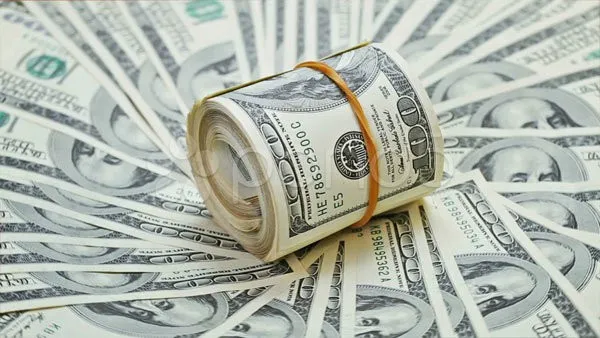
Gold transactions soaring
In the current unpredictable scenario of the Covid-19 pandemic, people now are holding on to their savings and whatever cash they may have, keeping in mind the eventuality of any sudden and unforeseen risk factors. This is the reason why gold and government bonds have increased in price and transactions in gold are soaring. According to the latest figures from the World Gold Council (WGC), by the end of the first quarter, central banks, investment funds and other financial institutions remain the main net buyers. Data shows that even small countries like Kazakhstan and Greece and now even Russia are focused on buying gold as a means of a safe financial haven.
Nonetheless, despite the large amounts of cash flow, the rich and very wealthy people and also large financial institutions are not just buying up safe assets in volumes but are using them for defense. Bank of America data shows that big investors like to focus on money market funds, which is evident in the fact that the amount of assets being managed at these funds has increased to more than USD 4,500 bn from less than USD 3,000 bn just two years ago. In just the first week of April, investors converted USD 52.7 bn into cash compared to USD 14.1 bn poured into city investment funds, or even stock investment funds that received only USD 10.7 bn. Data also shows that institutional investors currently hold the most cash since the September 11 terrorist attack in 2001 in the USA. The US dollar index has risen beyond 100 points, up to more than 30% in the past nine years, despite the US Federal Reserve's announcement of unlimited monetary easing, which also shows that institutions are still actively holding on to money as a source of liquidity.
In actuality, aid or relief money only goes to the middle classes and the poor are the main targets for bailout packages, even for support money that the governments give each citizen without a collateral, or through intermediaries of commercial banks. Actually, rescue packages only seem to happen in theory but these are also applied in the USA, Australia, Hong Kong, Macao, Singapore, and even Vietnam, where cash support packages are directly being offered to people affected by the pandemic.
However, the purpose of this cash flow is to allow more purchasing, run businesses and boost the economy, besides paying off debts and being able to maintain the minimum standards of daily life. According to data from the International Institute of Finance (IIF) and Bloomberg, worldwide debt has reached USD 260,000 bn. This figure has doubled from 20 years ago and is growing at a faster pace. In 2018, the increase was only about USD 3,300 bn, but in 2019 it had reached USD 10,800 bn. The reason is that the central banks and the governments of all countries need the money to be able to lower interest rates, stimulate growth and investment, and support loans. This solution makes almost all people indebted, from the government, businesses, right down to the people.
Debt amount worrisome
Thus, the debt amount at this time is not a miniscule amount but is a phenomenal “debt mountain". Of the total debt amount of USD 260,000 bn, the most worrisome is the rapid increase in public debt, debt of non-financial businesses, and of household debts. According to Bloomberg, in the past 20 years, public debt in America, Europe and Japan has increased four to five times. Debt of households since the crisis in 2008 has increased by more than 30%, while the debt of non-financial businesses has nearly doubled. Meanwhile, debt of financial enterprises, which seems to have taken some lessons from the previous crisis in 2008, only increased by about 10%. With this structure and growth rate of debt, the most vulnerable group has seen the highest growth speed.
It is then rational to think that most of the new money in incentive packages will be used for debt repayment. Businesses and individuals also need to pay debts, cover their overhead costs and avoid bankruptcy. In Vietnam, authorities show that by the end of the first quarter, credit growth was only 1.3% over the same period last year, but by the end of April, credit growth was negative by 0.5%, reflecting low demand for credit, and more focus on repayment or just survival.
Therefore, in an effort to make money fast, especially when working from home during lockdown, the best stimulus is speculative assets that can attract cash flow. The global stock increased sharply right after the Fed and the Central Banks announced several stimulus packages. Many markets even regained most of what was lost and entered the bull market. Gold continued to set new heights despite the fact that everywhere economy is seeing a downslide.
In this situation, when the financial market does not run parallel with the economy, it will become less sustainable and speculative, especially in the context of rich, large organizations that are focused on securing their cash and assets. The International Monetary Fund (IMF) has issued a warning in the event of a crisis, as insolvency threatens 40% of corporate debts in most major economies. The credit rating agency Standard & Poor says that investors currently have trillions of US dollars’ worth of bonds that are almost deemed as "junk", which will eventually threaten global economy.




















